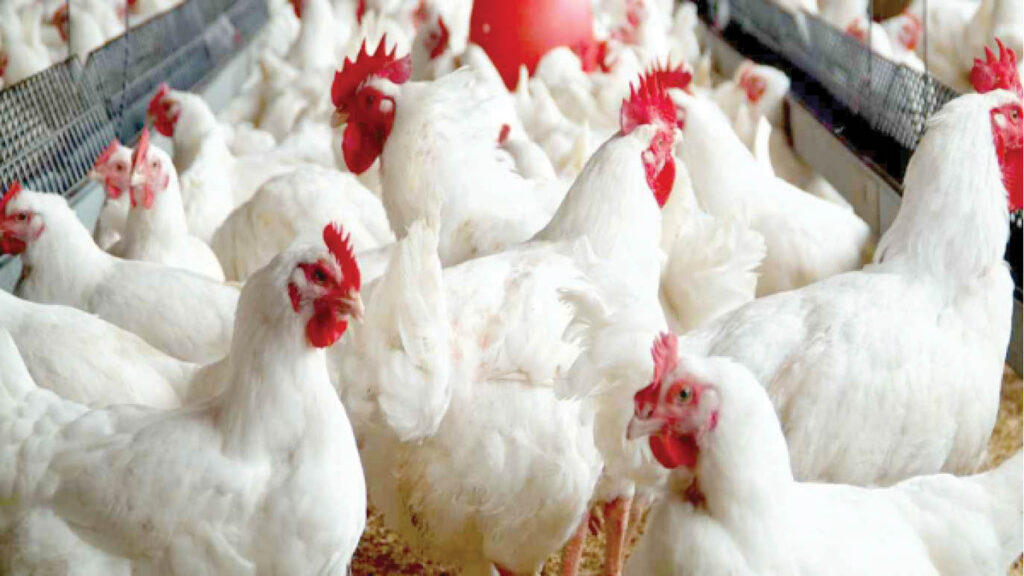[ad_1]
Nigeria’s poultry business is the most well-organised in the livestock sector. From a rural system, it has developed into a more commercially structured one.
The United Nations’ Food and Agriculture Organisation (FAO) estimated that Nigeria’s poultry sector is worth $4.2 billion but shortage of maize, which is used to make poultry feed, is endangering the sector.
Although it mostly serves the local market with some informal trade in the ECOWAS sub-region, analysts believe that with a few changes, it may eventually reach the global market.
SPONSOR AD
Dr Junaidu Maina, a livestock specialist, has outlined the different methods Nigeria might easily enter the international poultry export market.
Dr Maina is of the view that, “The next logical step for Nigeria’s poultry industry is to venture into the export market. Achieving this goal requires strict adherence to international food safety standards established by the WTO’s Agreement on Sanitary and Phytosanitary (SPS) Measures and FAO/WHO Codex Alimentarius Commission standards on veterinary drug residues, pesticide use, food additives, and contaminants.”
He argued that the “Nigeria’s poultry industry possesses a unique competitive advantage due to the weak naira, which reduces production costs. This positions Nigerian poultry meat as an appealing option for export, particularly to markets with increasing demand for affordable protein sources.”
According to the expert, Nigeria will become a major chicken producer in Africa, and these profitable export prospects would be unlocked by adherence to international standards.
With Nigeria partnering JBS, the biggest meat processing company in the world, under a USD 2.5 billion deal to build six state-of-the-art facilities to process beef, pork, and poultry, the country has enormous potential to be a major player on the global stage.
What needs to be done
Dr Maina said since JBS uses Hazard Analysis Critical Control Point (HACCP) and is Good Manufacturing Practice (GMP) certified, the Federal Ministry of Livestock Development “should replicate Thailand’s success by adopting and implementing” three “strategies.”
First, “strengthen the Veterinary Services; enforce strict sanitary standards, conduct rigorous disease surveillance, regular testing, and culling to control disease outbreaks, especially avian influenza (AI); maintain non-vaccination policy for AI alongside improved biosecurity and enhanced farm management practices; create digital platforms for networking, quality assurance of delivery of veterinary service and animal welfare and develop Standard Operating Procedures (SOPs) for all routine operations.”
Second, “Strengthen Animal Husbandry Services by establishing baseline data for participating farmers, farms and companies, promote vertical integration of small-scale farms with larger, well-managed commercial farms; partner with financial institutions to create innovative financing models and facilitate access to livestock insurance to mitigate risks from disease outbreaks and climate-related events.”
Third, “empower Poultry Association of Nigeria (PAN) to strengthen its Market Information Systems to provide real-time market data on prices, demand, and consumer preferences through digital platforms and traditional media; enable farmers to make informed decisions, plan production effectively, and reduce intermediaries; promote collective bargaining and access to quality inputs; liaise with stakeholders to address perennial feed shortages and develop mentorship programs to help farmers meet export market requirements.”
The expert believes that if these techniques are implemented well, they should open up access to profitable export markets and related opportunities. They should also act as a guide for negotiating the more complicated beef market.
Do you want to share a story with us? Do you want to advertise with us? Do you need publicity for a product, service, or event? Contact us on WhatsApp +2348183319097 Email: platformtimes@gmail.com
We are committed to impactful investigative journalism for human interest and social justice. Your donation will help us tell more stories. Kindly donate any amount HERE




